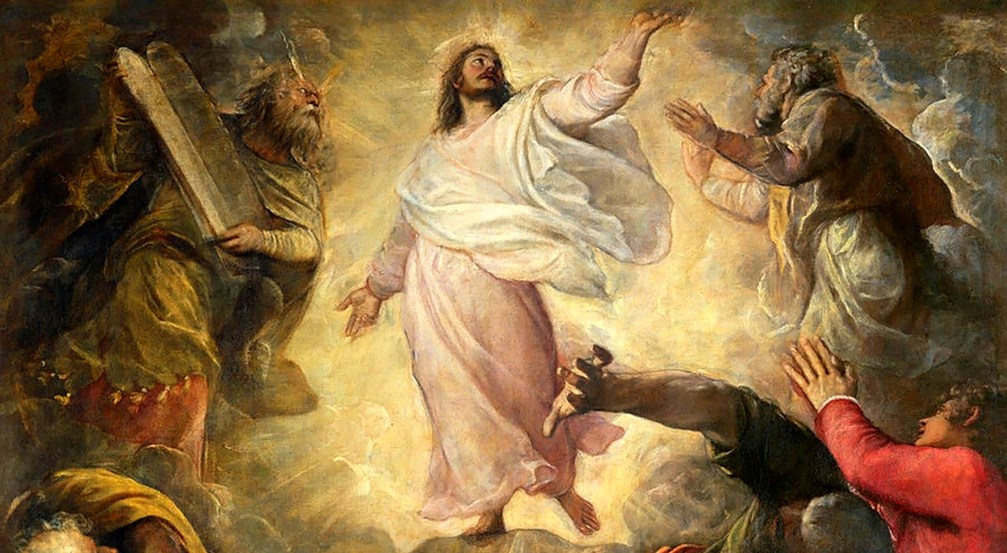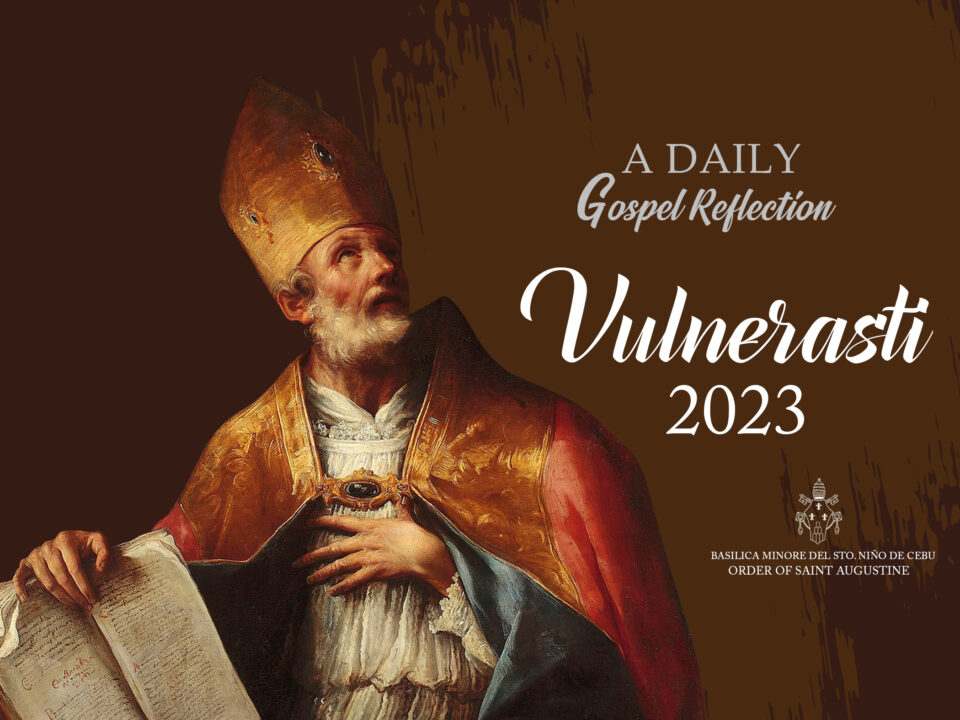Sunday | Second Sunday of Lent

https://lutheran-church-regina.com/blogs/post/comfort-in-the-details-sermon-luke-928-36-pr-ted-a-giese-sunday-march-3rd-2019-transfiguration-sunday-mount-olive-lutheran-church
Today’s Reflection
Gospel: Lk 9:28b-36
March 13, 2022 | Sunday
About eight days after Jesus had said all this, he took Peter, John and James, and went up the mountain to pray.
And while he was praying, the aspect of his face was changed, and his clothing became dazzling white. Two men were talking with Jesus: Moses and Elijah. Appearing in the glory of heaven, Moses and Elijah spoke to Jesus about his departure from this life, which was to take place in Jerusalem.
Peter and his companions had fallen asleep; but they awoke suddenly, and they saw his glory and the two men standing with him. As Moses and Elijah were about to leave, Peter—not knowing what to say—said to Jesus, “Master, how good it is for us to be here! Let us make three tents, one for you, one for Moses and one for Elijah.” And no sooner had he spoken, than a cloud appeared and covered them; and the disciples were afraid as they entered the cloud.
Then these words came from the cloud, “This is my Son, my Beloved, listen to him.” And after the voice had spoken, Jesus was there alone.
The disciples kept this to themselves at the time, telling no one of anything they had seen.
Today’s Reflection (by Fr. Lazaro N. Ervite, OSA):
Karl Rahner (1904-1984), one of the most notable theologians of the 20th century, once remarked that Christians of the 21st century must either be mystics (those who have experienced God for real) or nothing at all. The Gospel Reading—Luke’s version of the Transfiguration—illustrates the necessity of the mystical experience of God. Three details in Luke’s account offer us some clues on how we may experience God for real.
The first detail is the appearance of Moses and Elijah (Lk 9:30). It should be noted that both men had profoundly experienced God on a mountain. Moses experienced God in a blast of thunder, in a blinding lighting, in a thick cloud, and in a violent shaking of the mountain on which he stood (cf. Ex 19:16-19). Elijah encountered similar phenomena on a mountain, but he experienced God as “a sound of sheer silence” (cf. 1 Kings 19:13). The appearance of Moses and Elijah in the transfigured Lord reminds us that God can be experienced both in high and low moments in life. We may encounter God both in the crowd or marketplaces and in the stillness of our rooms. God is present in our life not just in times of joys and successes but also in moments of sorrows and failures.
Which brings us to the second detail which has to do with what Moses and Elijah tell the “transfigured” Jesus, namely, his departure which is to take place in Jerusalem (Lk 9:31). The term “departure” is more than a reference to Jesus’ impending death on the cross. The Greek word used for that term is “exodos” (ἔξοδος) which is a clear allusion to the exodus event. The latter refers to the forty years of arduous journey of the Israelites through the wilderness on their way to the Promised Land. In the face of hunger, thirst, and other difficulties, the Israelites felt the absence of God. In moments of extreme difficulties, they felt abandoned by God and considered going back in slavery to Egypt. In reality, however, God never left them. He accompanied them throughout their journey. Similarly, we too feel abandoned by God in moments of crisis and tests in life. God appears to be absent when we need him most. However, the fact that God never left His people throughout their journey suggests that he is always present in our life. We just have to become more discerning of his presence especially when we feel lost and abandoned.
The third detail presents us an example of how to discern perseveringly the presence of God in times of trials and difficulties in life. This example is illustrated in how Peter, James, and John struggle to stay awake despite being weighed down with sleep in order to be able to behold the “transfigured” Jesus (Lk 9:32). Overcoming sleepiness, they have indeed experienced the Glory of God for real. In the same vein, whenever we feel weighed down with various kinds of difficulties and tests in life, we should remain steadfast in discerning the presence of God. All the more should we persevere in prayer and contemplation whenever we feel abandoned and seem convinced of the nonexistence of God. We can draw inspiration from the poem entitled Footprints in the Sand. The author dreams of seeing two sets of footprints in the sand: his footprints and that of the Lord. In times of sorrows, he notices only one set of footprints. The Lord tells him: “My precious child, I love you and will never leave you during your trials and testings. When you saw only one set of footprints, it was then that I carried you.” /Vulnerasti, 2022



